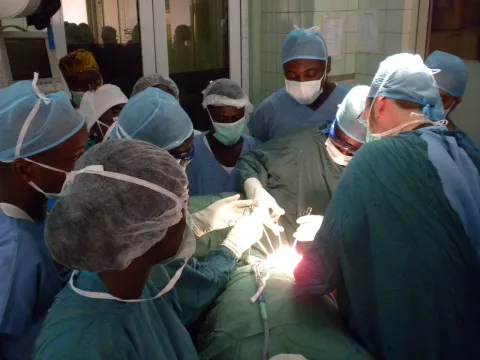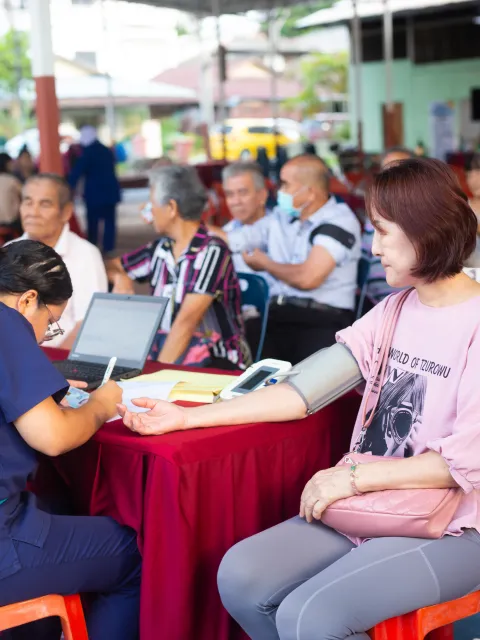Health system characteristics and breast cancer: Reduced mortality depends on health equity

Breast cancer outcomes vary greatly around the world. The 40% reduction in breast cancer mortality seen in high-income countries since 1990 have yet to be achieved in the majority of low- and middle-income countries (LMIC).
While five-year breast cancer survival rates are well in excess of 80% in North America, Western Europe and Australia, they are only 66% in India and 40% in South Africa. While this is a clear statement of health disparity, it also suggests global opportunity. The question we must ask is how to transfer what has worked in high-resource settings into less successful regions using strategic approaches that are practical, affordable and sustainable.
On 8 March, 2021, which was International Women’s Day, the World Health Organization (WHO) launched the Global Breast Cancer Initiative (GBCI).[1] GBCI’s primary objective is to reduce global breast cancer mortality by increasing access to breast cancer early diagnosis and prompt comprehensive cancer management. To develop strategies to achieve this worthy goal, it is necessary first to characterise national health systems and determine which features are associated with reduced breast cancer mortality to understand what factors underly success.
WHO, the International Agency for Research on Cancer (IARC) and the World Bank maintain extensive databases recording key health systems data, economic metrics and cancer incidence and mortality statistics. In a recently published study,[2] GBCI collaborators examined the highest quality national cancer registry data and health systems information available to WHO and IARC from 148 countries to determine their relationships between national health-system characteristics and current estimates of breast-cancer mortality in those countries.
The study found that several health system characteristics were significantly associated with breast cancer age-standardised mortality rates. These included the degree of universal health coverage in a country as measured by Universal Health Coverage Service Coverage Index (UHC Index); dedicated funding for early detection programmes; presence of breast cancer early detection programmes or guidelines; breast cancer screening programmes; a breast cancer referral pathway; having cervical cancer early detection programmes or guidelines; and number of public cancer centers per 10,000 patients with cancer.
When these individual factors were then statistically compared with multivariate analysis (which involves multiple dependent variables resulting in one outcome), only two factors remained significantly predictive of national breast cancer mortality: the UHC Index and the number of public cancer facilities per 10,000 cancer patients. Stated simply, the health systems most likely to achieve meaningful breast cancer mortality reductions have increased availability of public cancer facilities and higher levels of funding to pay for that care.
At first glance, these observations might seem simplistic and statistically dry. On reflection, these findings are profoundly meaningful and provide actionable guidance. Countries that have been successful in reducing breast cancer mortality do two things – they provide public sector access to healthcare while they provide funding to make delivery of that care possible. Thus, the promotion of UHC to include cancer-related services combined with improved access to public cancer centers are appropriate targets for health systems strengthening, supporting the strategic implementation of WHO’s Global Breast Cancer Initiative.
Funding and access in healthcare are fundamental determinants of health equity as they separate the have’s from the have not’s. The argument for equity is based in fairness and morality – one’s likelihood of surviving illness should not be arbitrarily determined based on the place one was born. This newest analysis demonstrates that addressing health equity is not only an ethical question; it is a requirement for improving national health system performance. Governments should not expect to see improvements in breast cancer outcomes until they address their funding and access issues that underly inequities in health.
Of note, the UHC Index does not directly measure coverage for cancer care. Data on the UHC Index is an indicator based on tracer interventions on essential health services, including reproductive, maternal, newborn and child health, infectious diseases, non-communicable diseases (NCD) and service capacity and access.[3] Clearly, cancer care must be paid for to achieve the required outcomes that translate to reduced breast cancer mortality. But it is notable and reassuring that general health strengthening as measured by the UHC Index correlates with improved cancer outcomes and speaks to the holistic approach of addressing healthcare broadly, as is the mandate for WHO.
_____________________________________________________________
References
[1] Anderson BO, Ilbawi AM, Fidarova E, et al. The Global Breast Cancer Initiative: a strategic collaboration to strengthen health care for non-communicable diseases. Lancet Oncol. May 2021;22(5):578-581. doi:10.1016/S1470-2045(21)00071-1
[2] Duggan C, Trapani D, Ilbawi A, et al. National health system characteristics, breast cancer stage at diagnosis, and breast cancer mortality: a population-based analysis. Lancet Oncol. 2021:published on-line 12 Oct 2021. doi:doi.org/10.1016/S1470-2045(21)00462-9
[3] World Health Organization. The Global Health Observatory: UHC Index of service coverage (SCI). World Health Organization. 31 December, 2020. Accessed 28 December, 2020. https://www.who.int/data/gho/data/indicators/indicator-details/GHO/uhc-index-of-service-coverage
Last update
Monday 05 December 2022Share this page


